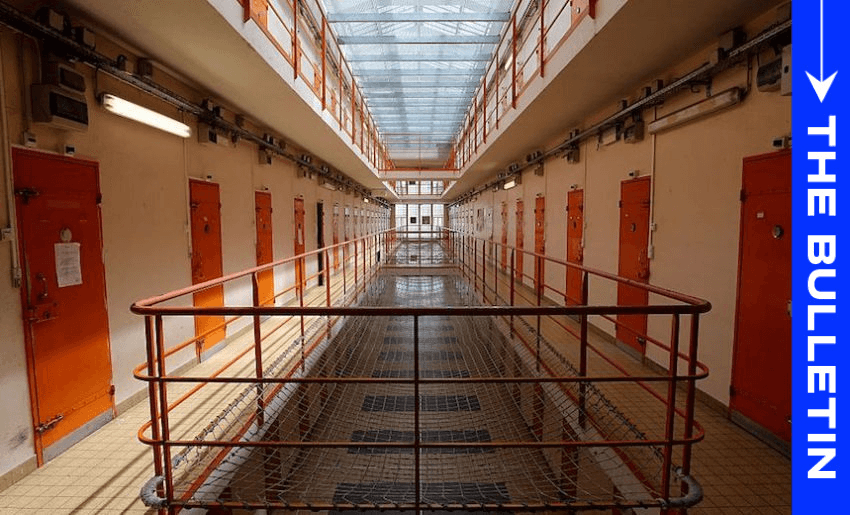The announcement that some inmates are to lose the right to vote has reignited a fierce debate over human rights and Treaty breaches, writes Catherine McGregor in today’s extract from The Bulletin.
To receive The Bulletin in full each weekday, sign up here.
Prisoner voting rights to be rolled back
In a move that justice minister Paul Goldsmith says reverses a key plank of “the previous government’s soft-on-crime approach”, prisoners serving sentences of three years or less will lose their right to vote. The government reform, which will affect an estimated 2,000-3,000 people, reflects the principle that “those who breach society’s rules lose some of their rights”, Goldsmith said. That’s despite a court ruling and expert reviews that found the original ban – in place until 2020 – to be inconsistent with human rights law.
The change will not apply retrospectively, meaning those already serving shorter sentences when the law is passed will still be eligible to vote in 2026. Remand prisoners and those on home detention will not be affected.
The history of a controversial law
The incoming change revives a contentious policy first introduced in 2010, when National introduced a ban on voting for all prisoners regardless of sentence length. That law was challenged by Arthur Taylor, a longtime prisoner and self-taught legal advocate, leading to a High Court declaration in 2015 that the law was inconsistent with the Bill of Rights Act. In 2018, the Supreme Court upheld that ruling. The Labour-led coalition responded in 2020 by amending the law to restore voting rights to those serving fewer than three years – considered a reasonable threshold, given they would likely return to the community within a single parliamentary term, explains Stuff’s Glenn McConnell.
The Waitangi Tribunal and the 2024 Independent Electoral Review both recommended going further and restoring voting rights for all prisoners. Andrew Geddis was a member of that 2024 review, making him the ideal person to write about the issue in The Spinoff this morning. “[The] government’s proposal is a pretty terrible one for a lot of reasons,” he writes. “But, for all that, it’s odds on that it will still get passed. The current coalition is so wedded to the wedge-issue ‘we’re tough on crime, the opposition aren’t’ mantra that pesky things like individual rights and the reasons for limiting them can’t be allowed to get in the way.”
Disproportionate harm to Māori
Legal experts and Māori leaders also say the change will have a particularly damaging impact on Māori. In a smart column for The Spinoff, legal academic Carwyn Jones describes the policy as a “retrograde and harmful” move that would clearly breach the Crown’s Treaty obligations. He pointed to longstanding issues of over-policing and over-sentencing of Māori, noting that Māori are more likely to be imprisoned for low-level offences and thus were disproportionately affected by disqualifying people serving sentences of under three years.
Prisoners who don’t vote in prison are also less likely to vote after release, the Waitangi Tribunal has found. Its 2019 report said the ban had the effect of a “de facto permanent disqualification” for many Māori – and the impact could be wide-ranging. “Taking away Māori prisoners’ right to vote affects all Māori,” one claimant told the Tribunal. “Individuals cast votes, but it’s communities which elect governments.”
‘Utterly trivial’ or a matter of principle?
The opposition parties have condemned the move as divisive and unnecessary, RNZ’s Lillian Hanly reports. Labour’s Duncan Webb said it was an “utterly trivial” issue for the government to be focusing on, given the more pressing issues facing the country, and that it amounted to “dog whistle politics.” Green MP Tamatha Paul called it “a stupid waste of time”, while Te Pāti Māori justice spokesperson Tākuta Ferris described it as a “shameful step backwards”. Prime minister Christopher Luxon, when pressed on past court rulings and human rights concerns, responded bluntly: “I do not care what anyone else says about it.” The Sensible Sentencing Trust welcomed the change and called for the ban to be extended to home detainees.


